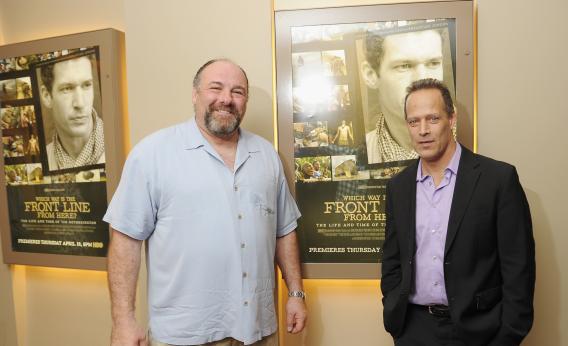The sad death of James Gandolfini is an excellent moment to look back at the TV show that made him famous. Part of what’s interesting about The Sopranos is that it’s not just an artistic achievement, it’s also the product of real business-model innovation. It reflected some broader trends in the industry and had some precursors, but it’s really the show that turned a certain kind of corner about what kinds of programming could be commercially viable and what aspirations it makes sense to finance.
Traditional American television, after all, was built atop an economic structure in which trying to make a really good show simply didn’t make sense. In its canonical form, the industry was built around three and only three national television networks. Not only did the three-network oligopoly offer very little competition, but there was little theoretical possibility of competition since access to the radio frequencies you’d need was constrained. In the three-network paradigm, what you wanted from a show was broad, shallow appeal. The potential audience for the most broadly appealing show at any given time slot was enormous. And even if you didn’t have the most broadly appealing show, the potential for counterprogramming was large. The key thing was to be inoffensive and widely accessible. You wanted a show that all kinds of people could relate to at least a little, and a show that didn’t cross any red lines.
The very existence of cable started to change things somewhat, but HBO was a specific kind of cable that changed things in a specific way. Because HBO was a subscription channel, suddenly preference intensity mattered a great deal. Putting a show on HBO that 10 million people thought was “just OK” did the network no good. You needed a show that some non-zero quantity of people liked so much that they wanted to pay HBO money to be able to watch it. Of course within that constraint, you’d rather have 10 million fans than 100,000 fans. But the point was that intensity mattered just as much as breadth. You needed shows that people felt fanatical about. HBO also had the advantage that there simply wasn’t that much HBO programming. On a conventional television network, plenty of shows simply had to put up with undesirable time slots, and any given episode of a new show could only air one time in a week. Since HBO didn’t produce that much content, the original programming it did produce could be guaranteed a plum Sunday time slot and multiple re-airings over the course of the week. That meant you could make a show that really only made sense if you watched the episodes in order. You wanted to attract fans who felt very strongly about the program, and you were allowed to place relatively large demands on those fans.
It was that unique HBO business model that made The Sopranos possible. But The Sopranos wasn’t HBO’s first original show. What it was, instead, was the first show that took the unique attributes of HBO programming and also became a hit.
That changed the game because as we entered the aughts, there was actually a broad spectrum of possible business opportunities between the traditional network paradigm and the HBO paradigm. There were other premium pay channels. There were lots of cable channels. There were five broadcast networks rather than three. Thanks to DVRs, “time-shifting” of when you watched shows was easier than ever. And things like DVD sales (and down the road, digital streaming) were becoming a bigger and more important part of the industry revenue mix. And The Sopranos showed that television intended to aim for high quality and deep audience loyalty could be broadly popular as well if it was done right. Everything that comes after on HBO and Showtime and A&E and FX and the rest of the cable original-programming ecology stems from that. Relatively little of it is as good or as popular as The Sopranos was, but the gap isn’t night-and-day the way that it was back in 1999 because the trail, once blazed, has been followed by many others.
